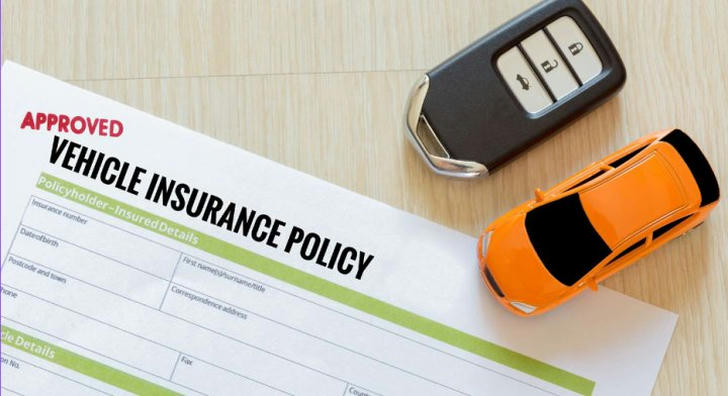What Should Seniors Pay Attention to When Buying Auto Insurance? And How Can They Save Money?
Introduction
When buying auto insurance, seniors should pay attention to several important factors: ensuring they have the right coverage for their vehicle, understanding what the policy does not cover, and taking advantage of any available discounts, especially those tailored for older drivers. Additionally, seniors should consider liability protection and coverage for medical expenses in case of an accident. To save money, comparing quotes from different insurers, taking advantage of discounts, and considering bundling policies can be effective strategies. With careful planning, seniors can secure comprehensive auto insurance without breaking the bank.
What Are the Key Factors Seniors Should Consider When Buying Auto Insurance?

Coverage for the Vehicle Itself
Why It Matters: Ensuring your vehicle is covered against damage from accidents, theft, or natural disasters is crucial. The right coverage can help repair or replace your vehicle without large out-of-pocket expenses.
•What to Look For: Choose a policy that includes comprehensive and collision coverage. Comprehensive coverage protects against non-collision events like theft or weather damage, while collision coverage handles repairs after an accident.
User Case Example:
James, a 65-year-old retiree, had a minor accident that damaged his car. His auto insurance included collision coverage, which covered the repair costs, saving him from a significant financial burden.
Liability Coverage
•Why It Matters: Liability coverage protects you if you cause an accident that injures someone else or damages their property. It can cover legal fees, medical bills, and repair costs.
•What to Look For: Opt for a policy with high liability limits to ensure you are adequately protected in case of a serious accident.
User stories: Liability Coverage Options
When choosing car insurance, Tom reviewed three different plans to find the best coverage for his needs. Plan A offered $100,000 in bodily injury coverage and $50,000 for property damage, costing $75 per year. Plan B provided more extensive protection with $250,000 for bodily injury and $100,000 for property damage, and came with a $150 annual premium. Plan C, the most comprehensive option, included $500,000 in bodily injury coverage and $200,000 for property damage, but had a higher annual cost of $200. Tom chose Plan B because it struck a good balance between coverage and cost, giving him more protection without breaking the bank.
Medical Payments Coverage (MedPay)
•Why It Matters: MedPay covers medical expenses for you and your passengers if you’re injured in an accident, regardless of who’s at fault.
•What to Look For: Consider adding MedPay to your policy, especially if you don’t have robust health insurance. It can cover expenses like hospital visits, surgeries, and even funeral costs.
User Case Example:
Sarah, a 70-year-old driver, was involved in a minor accident that resulted in a trip to the emergency room. Her MedPay coverage took care of the medical bills, which helped her avoid out-of-pocket expenses.
Age-Related Discounts and Special Offers
•Why It Matters: Many insurance companies offer discounts to seniors, which can significantly reduce the cost of auto insurance.
•What to Look For: Check if your insurance provider offers discounts for safe driving, low mileage, or completing a defensive driving course. These discounts can add up to substantial savings.
User stories: Age-Related Discounts
When looking for car insurance discounts, Jane discovered several ways to save. As a 68-year-old, she qualified for a senior discount, which took 10% off her premium. Since she hadn’t had any accidents in the past five years, she also received a 15% safe driver discount. Additionally, Jane drives less than 7,500 miles per year, so she was eligible for a 20% low mileage discount. By combining these discounts, she significantly reduced her insurance costs, making her premium much more affordable.
What Are Some Tips for Saving Money on Auto Insurance for Seniors?

Compare Different Plans
•Why It Helps: Insurance premiums can vary greatly between providers, so it’s important to shop around.
•How to Do It: Use comparison websites to view different policies side by side. This allows you to find the best coverage at the most affordable price.
Take a Defensive Driving Course
•Why It Helps: Completing a defensive driving course can often qualify you for a discount on your auto insurance.
•How to Do It: Many insurance companies offer discounts to seniors who complete these courses, which are available online or in person. Check with your insurer to see if they offer this discount.
Bundle Insurance Policies
•Why It Helps: Bundling your auto insurance with other policies, like home insurance, can lead to significant discounts.
•How to Do It: Contact your current insurance provider to see if they offer discounts for bundling, or shop for a new provider that does.
Reduce Coverage on Older Vehicles
•Why It Helps: If your vehicle is older and not worth much, you might not need comprehensive or collision coverage.
•How to Do It: Consider dropping these coverages if the cost of insurance is higher than the value of the car itself. This can reduce your premiums without compromising essential protection.
What Are Some Common Mistakes to Avoid When Buying Auto Insurance?

Not Reading the Fine Print
•Why It’s Important: Insurance policies can have complex terms that might limit your coverage in unexpected ways.
•What to Do: Carefully read your policy’s terms and conditions to understand what is and isn’t covered, including any exclusions or limitations.
Underinsuring Your Vehicle
•Why It’s Important: If your coverage limits are too low, you might not receive enough money to fully repair or replace your vehicle after an accident.
•What to Do: Make sure your policy covers the full replacement cost of your vehicle and includes adequate liability coverage.
Overlooking Coverage for Uninsured/Underinsured Motorists
•Why It’s Important: This coverage protects you if you’re in an accident with a driver who doesn’t have insurance or doesn’t have enough insurance to cover your damages.
•What to Do: Consider adding uninsured/underinsured motorist coverage to your policy for added protection.
Choosing the Cheapest Option Without Checking Coverage
•Why It’s Important: The cheapest policy might not provide adequate coverage, leading to high out-of-pocket costs in the event of a claim.
•What to Do: Compare the coverage options of different policies, not just the price, to ensure you’re getting the protection you need.
Conclusion

Choosing the right auto insurance is essential for seniors. It ensures your vehicle, liability, and medical expenses are well-covered in case of an accident or other unexpected events. To save money, compare different insurance options, take advantage of discounts, and consider bundling policies. By selecting the best plan and taking advantage of cost-saving tips, you can protect your vehicle without overspending.
